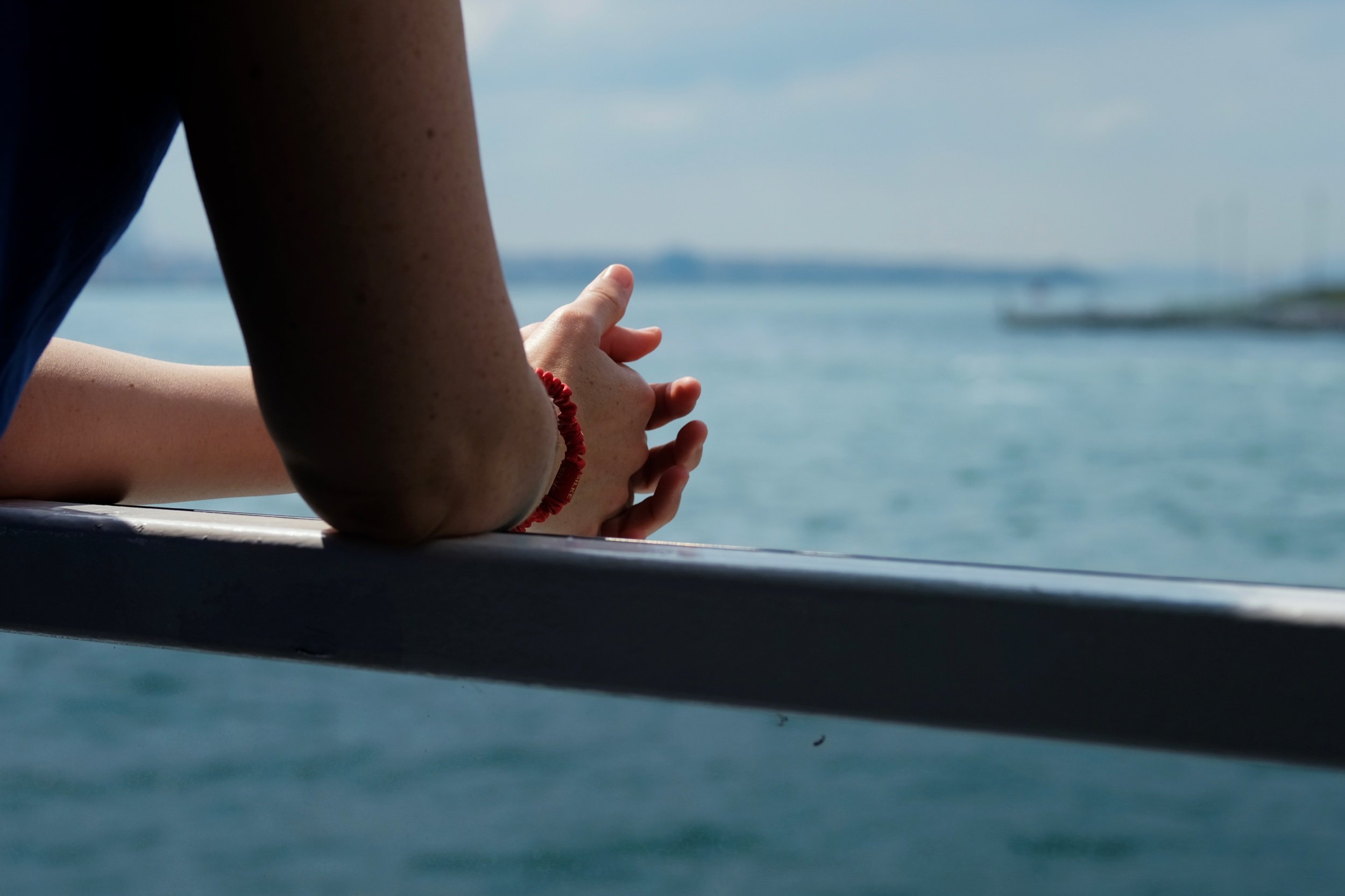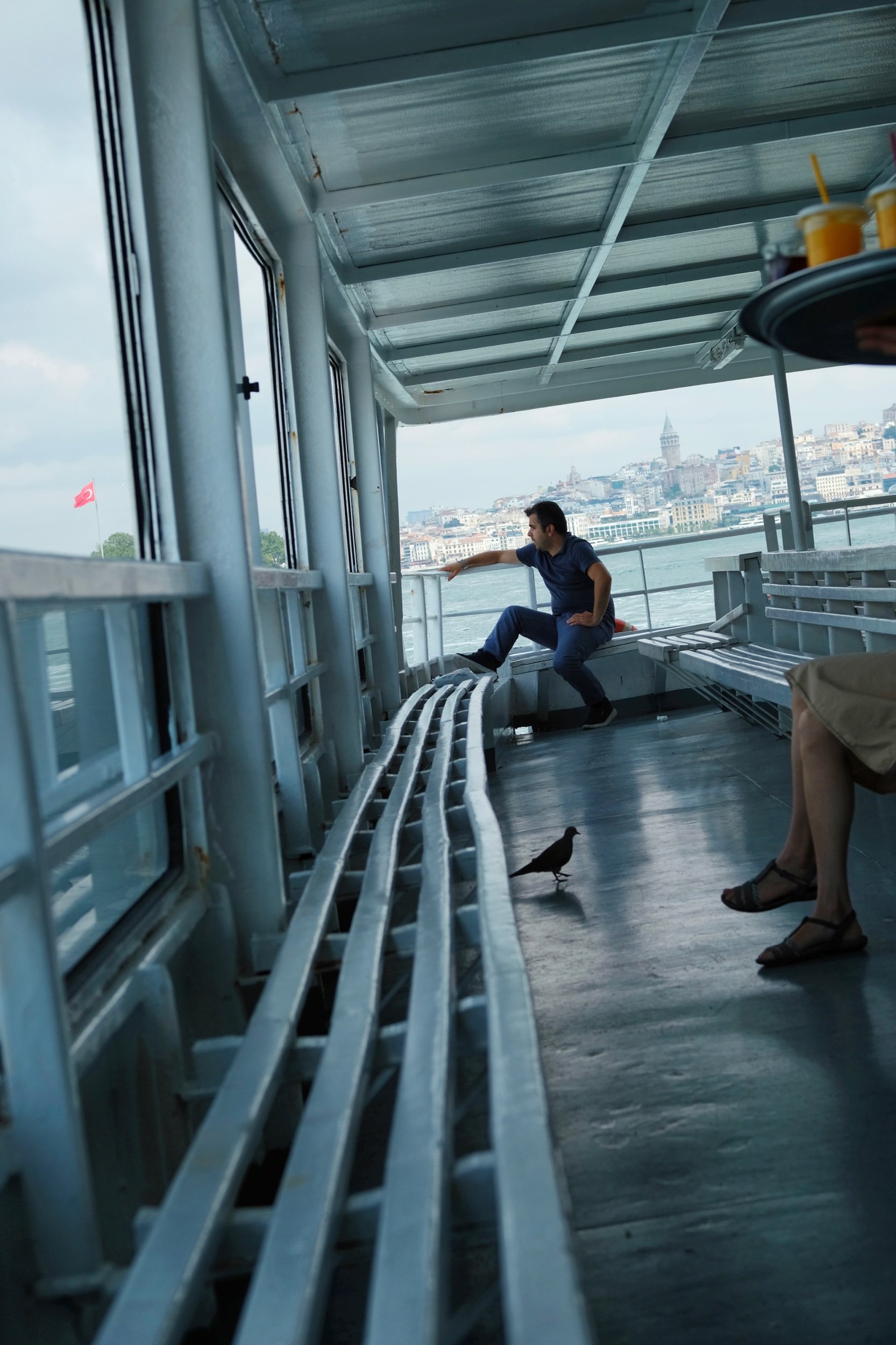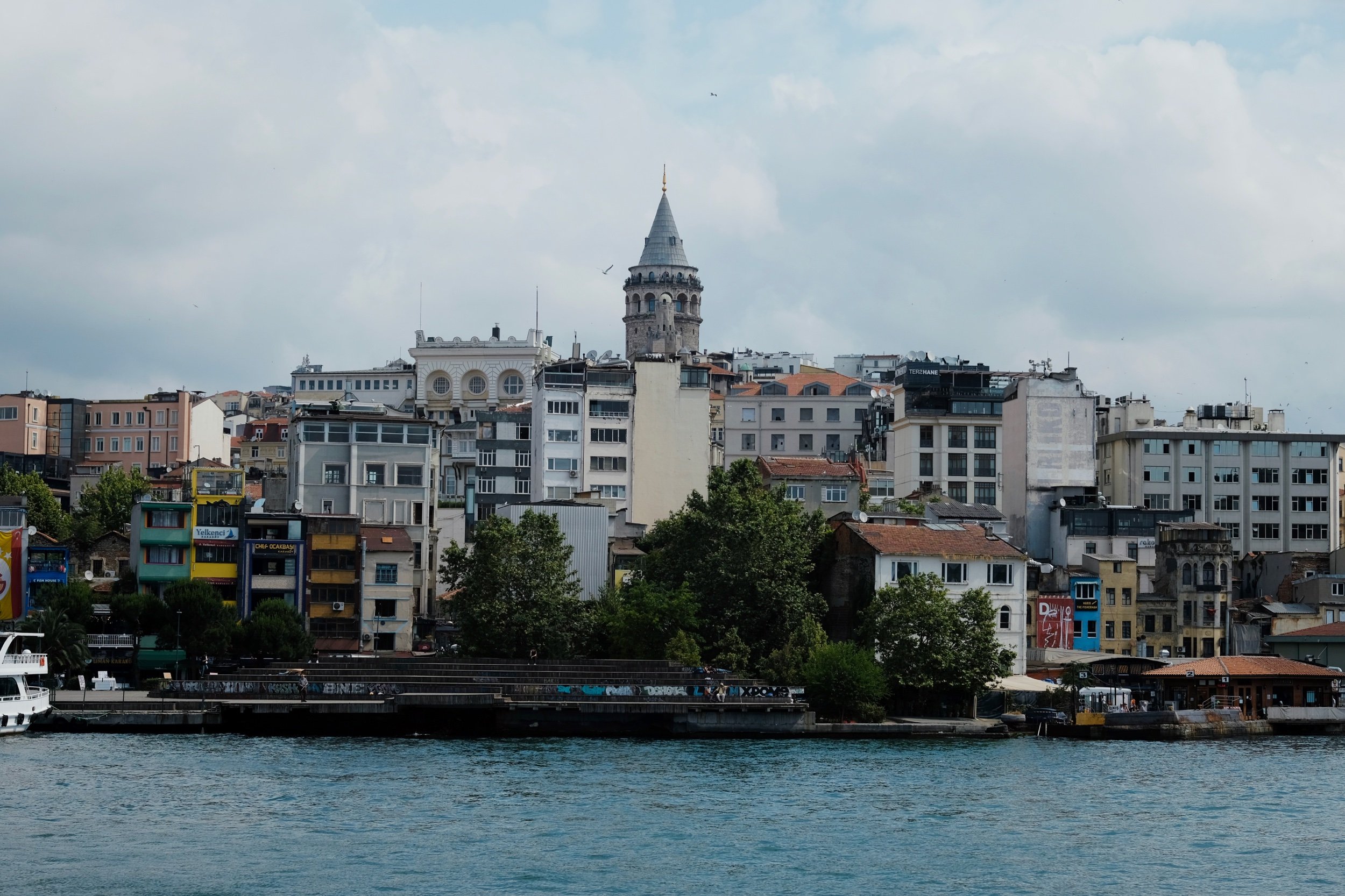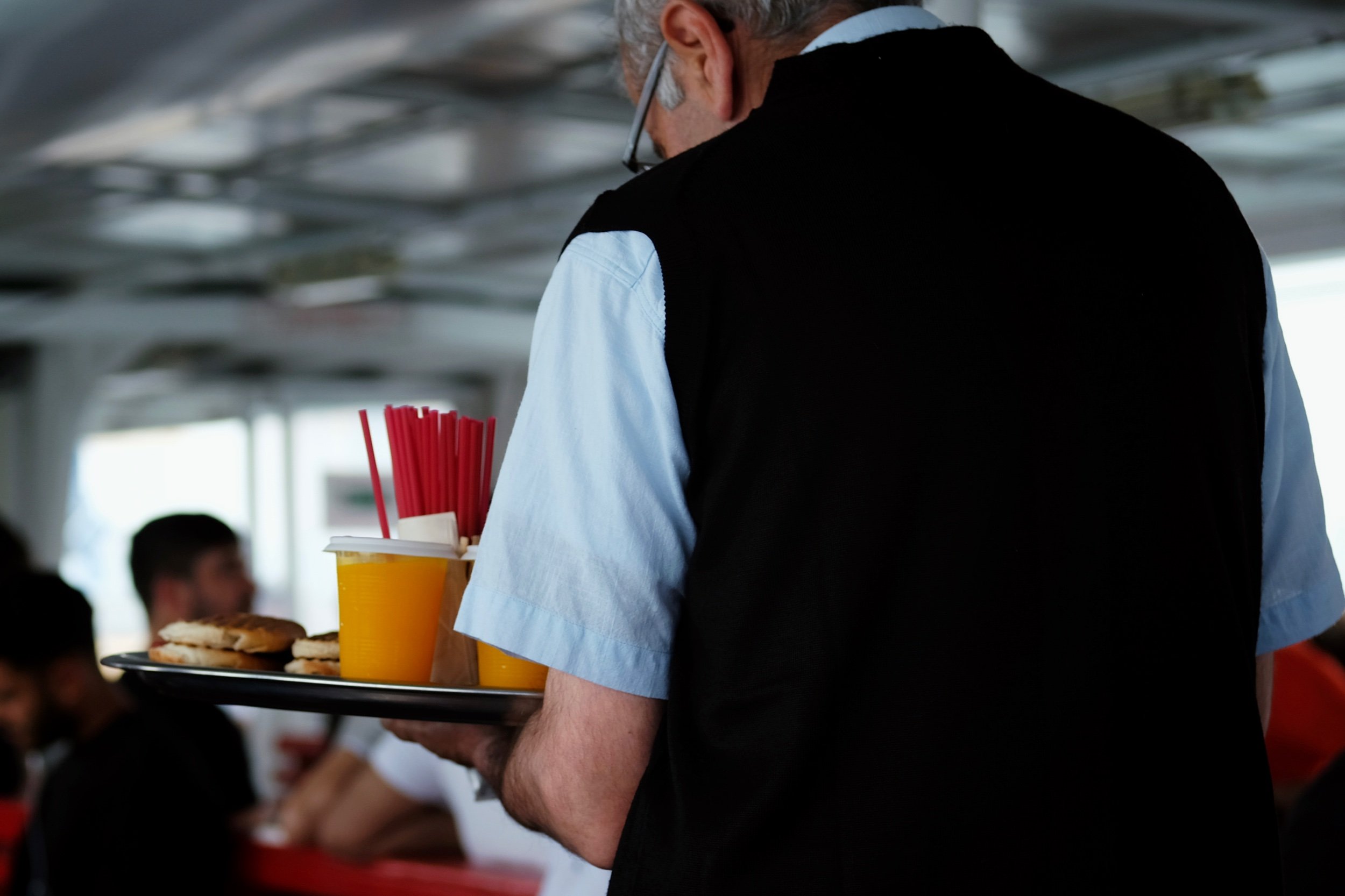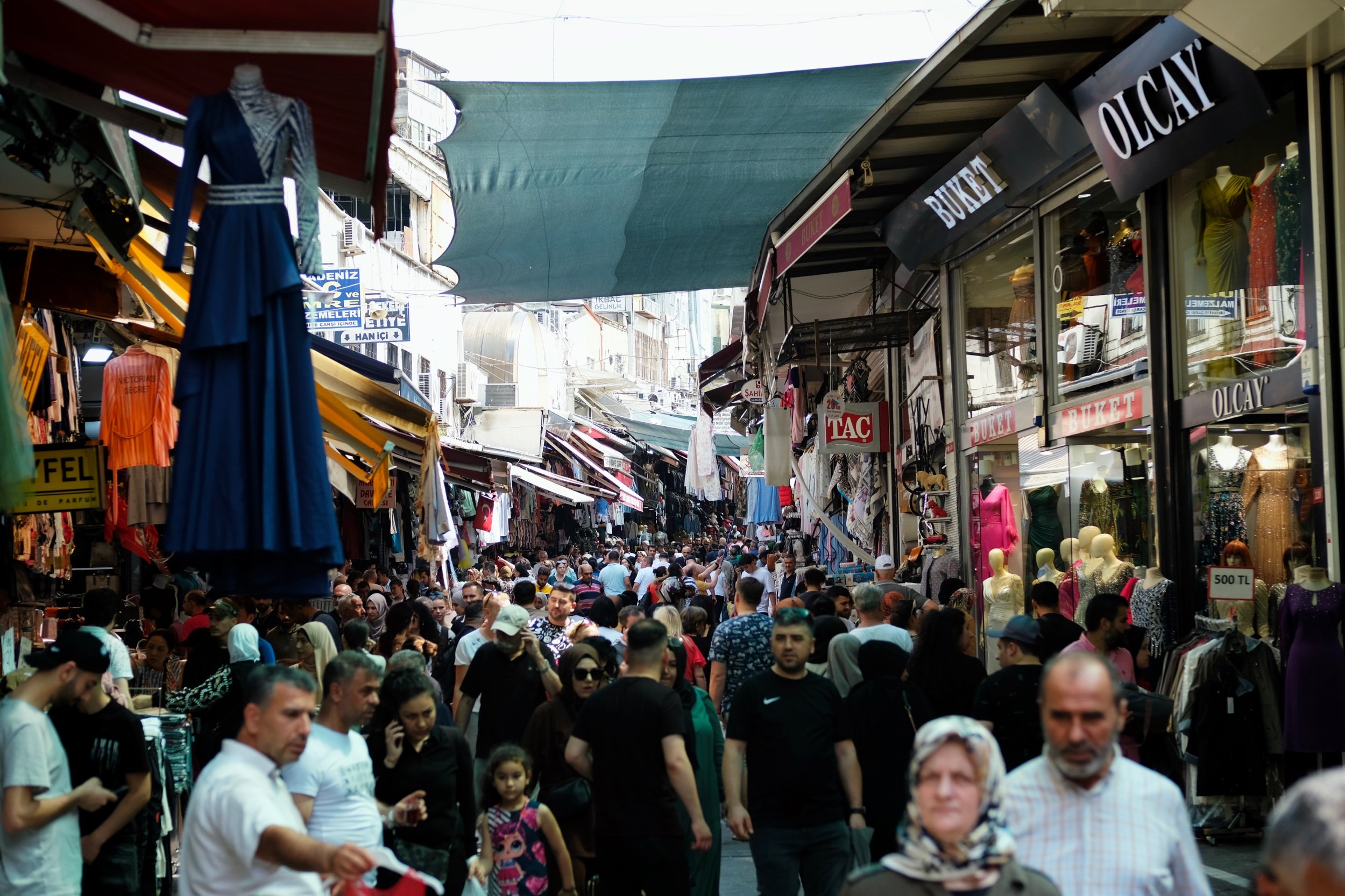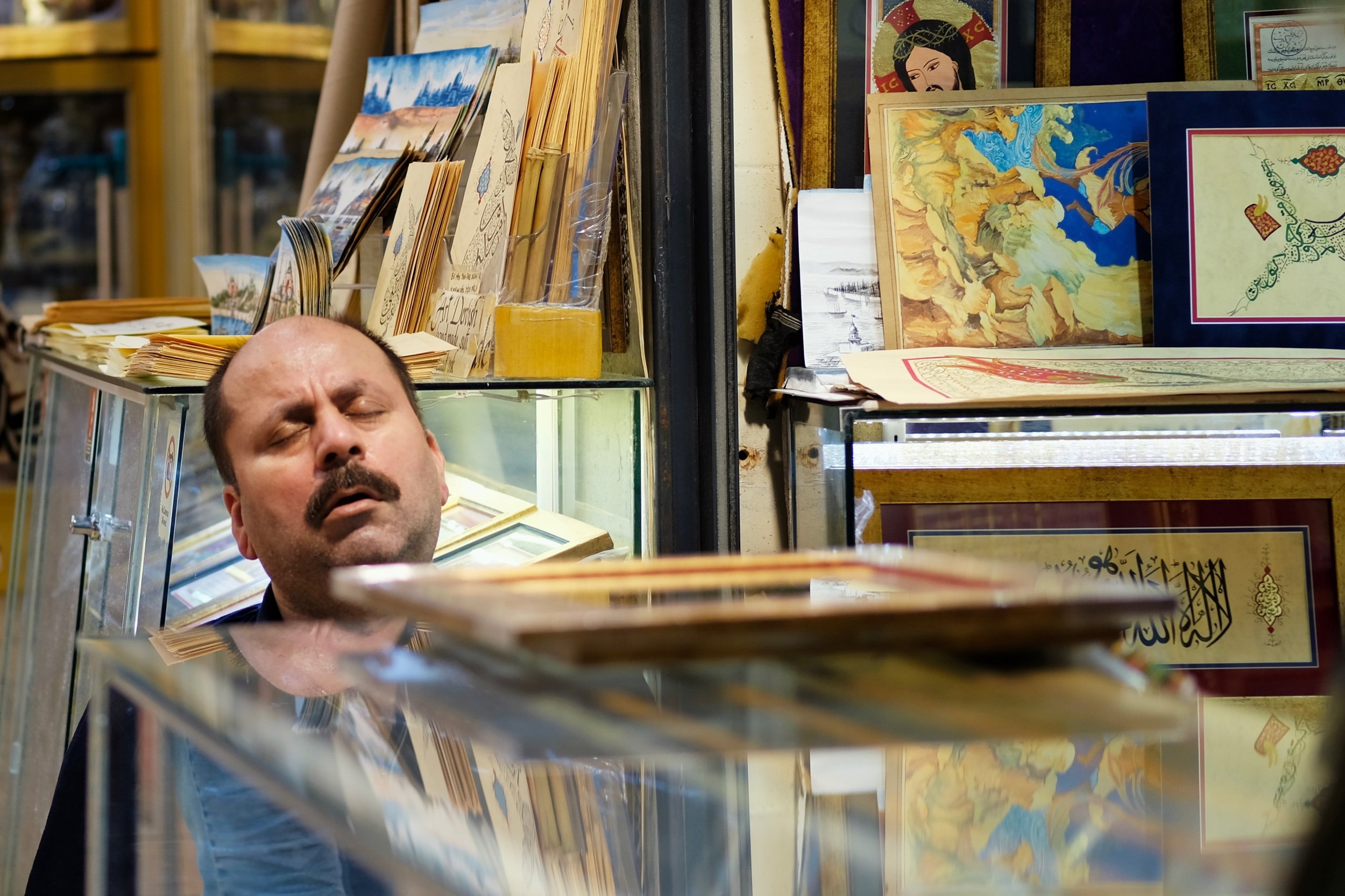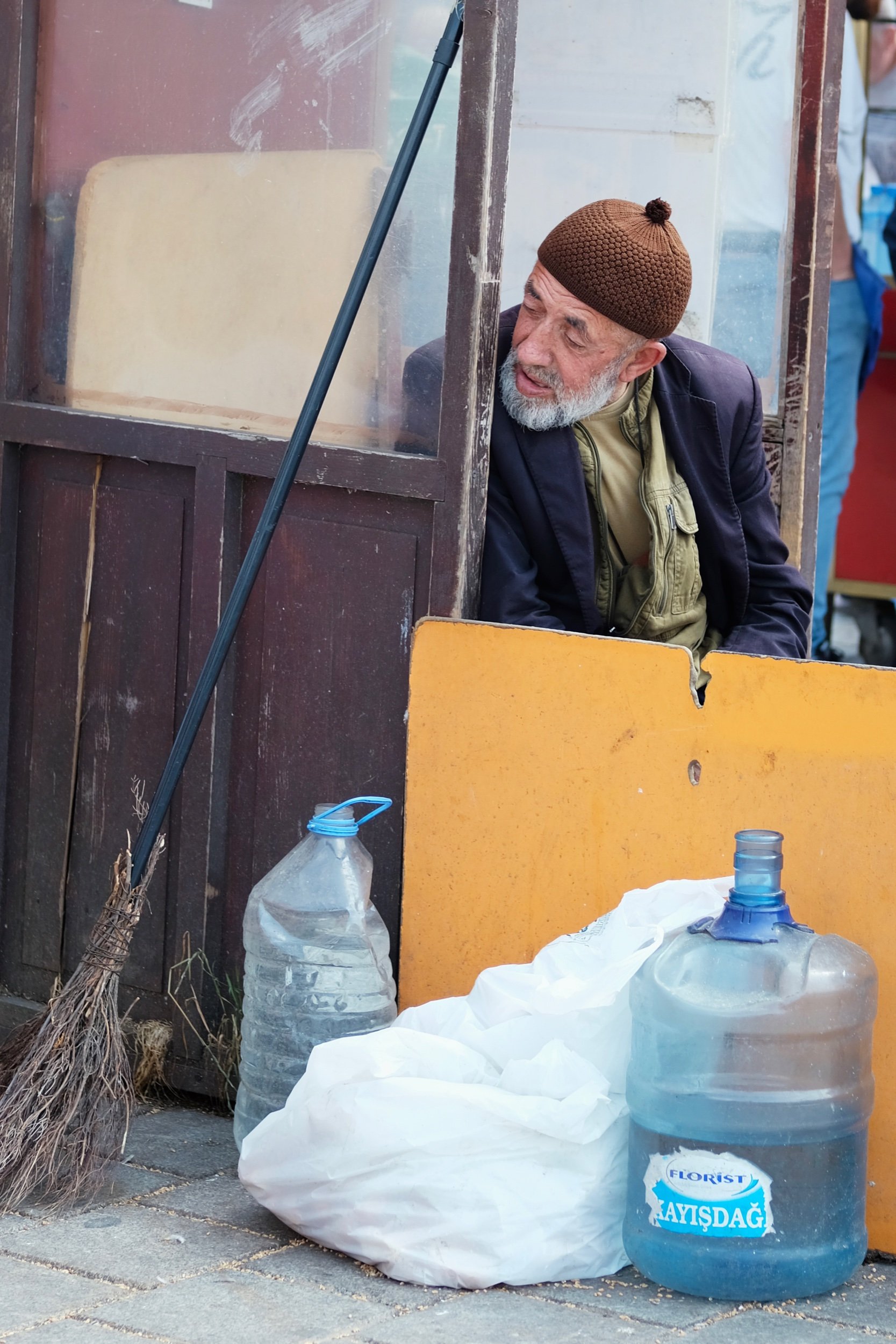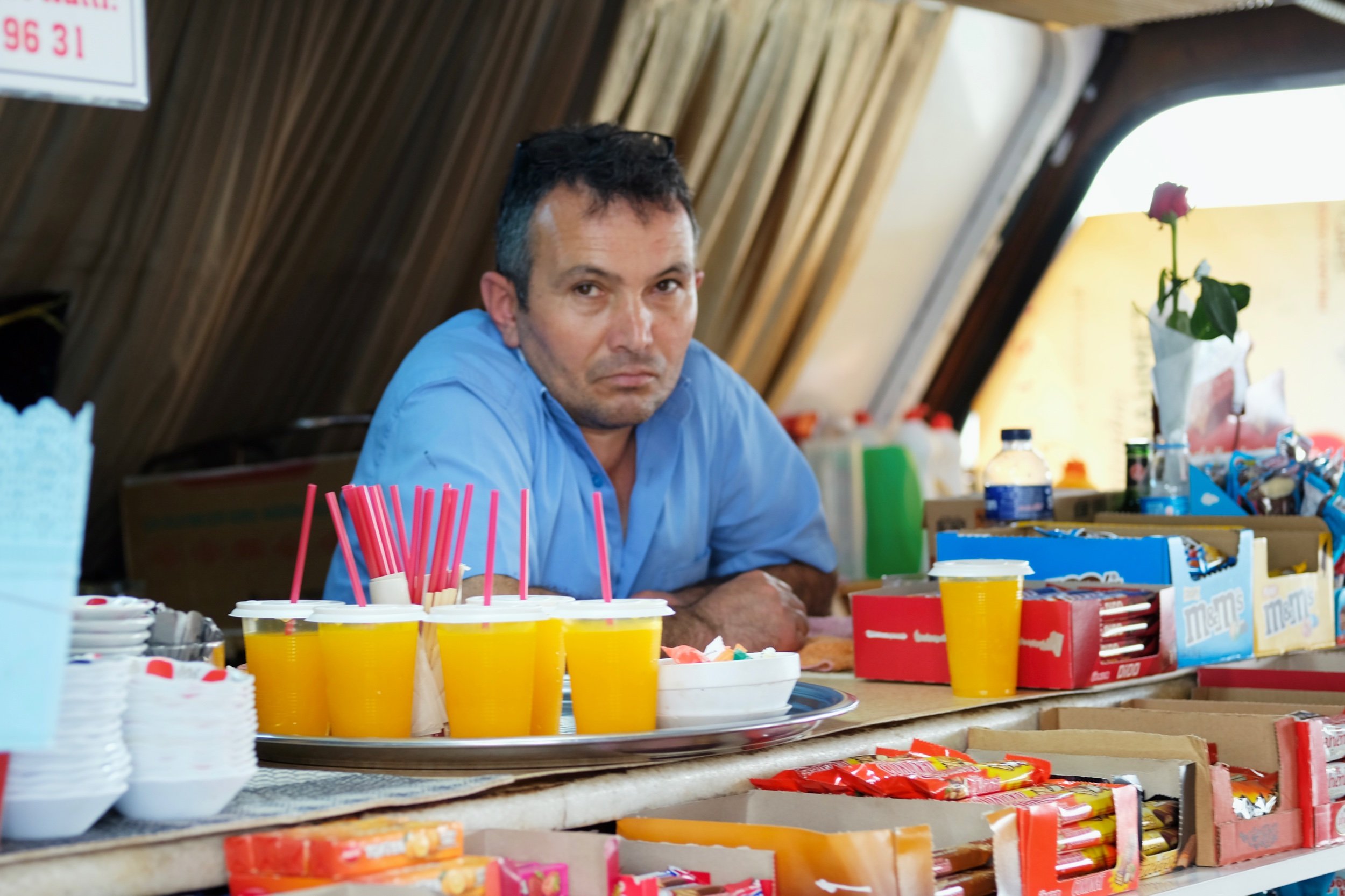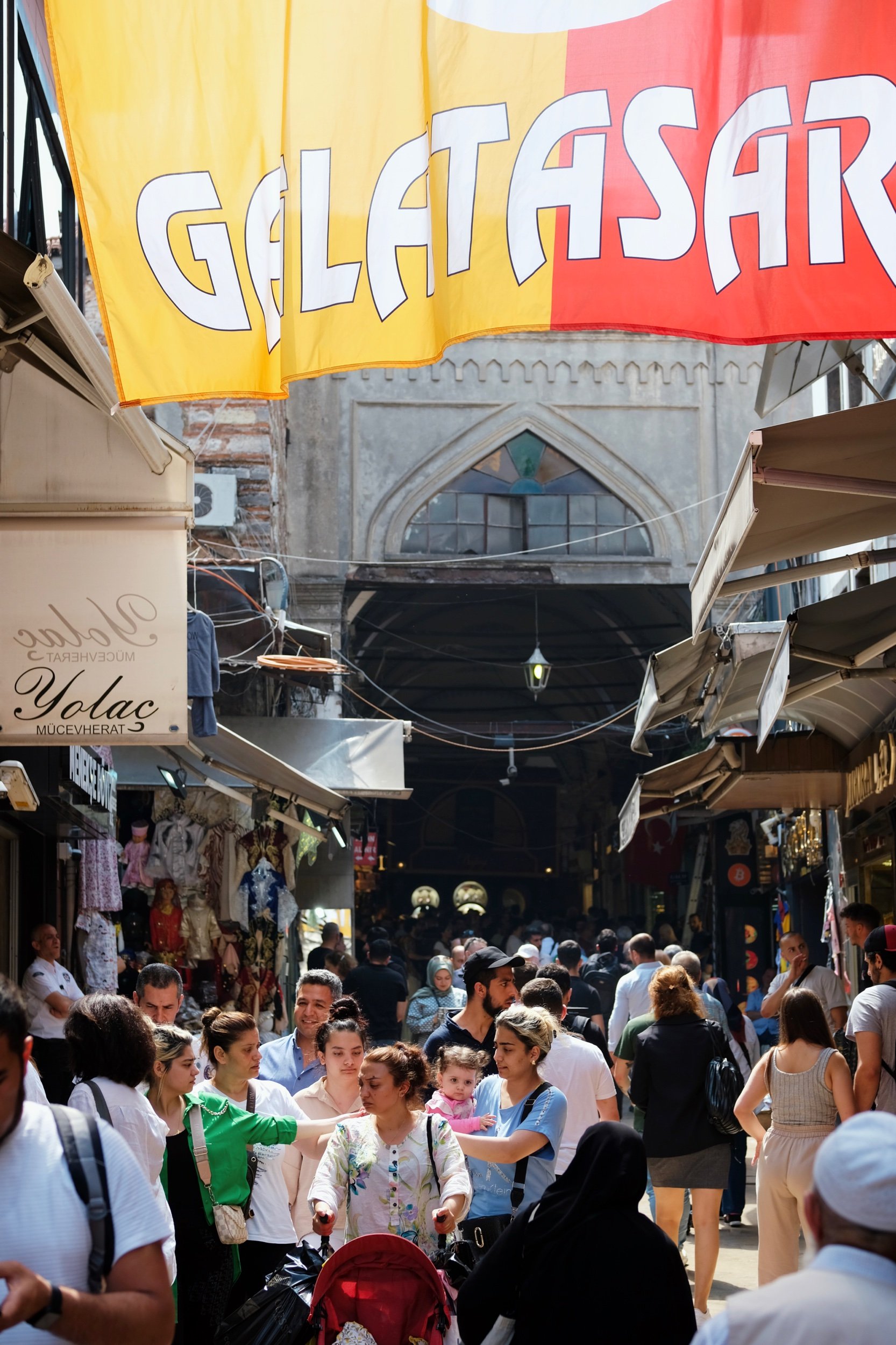Istanbul, Days 1-2
No more sleepy hill towns and small cities. The first thirty hours in this chaotic, massive, incredible city have been an adrenaline rush.
The cab from the airport had two huge cracks in the windshield and alert lights flashing for an unworn seatbelt, scheduled service needed, low tire pressure, and transmission problems. Our driver let us out a half mile from the hotel; police checkpoints prevented him from getting any closer. We had to show proof of our reservation to get past a clump of officers guarding the fences where we got out.
The police were there, it turns out, to prevent the annual Pride parade. Past versions of the parade — the oldest in any Muslim-majority country — had attracted as many as 100,000 participants. But a few years ago the mayor banned the parade “for safety,” and the police had been deployed to make sure no one marched.
After dropping our bags, I tried to walk around Galata. But I encountered hundreds, possible even thousands, of cops. Every street and cafe was full of them. They smoked cigarettes and drank tea and scrolled on their phones. The small parks had clusters of riot police. Every single intersection and main road had a fenced checkpoint with a half dozen cops or more, and you could only cross one of the main streets if you could could show them a map on your phone of your destination. It was a deeply uncomfortable situation. Thankfully dinner was just a block from our hotel.
This morning we took a ferry across the Bosphorous to the Asian side. We met up with our tour guide, a public school English teacher who does private food tours on the side. Doner, pickles, lahmacun, grilled corn, gozleme, coffee, tea, rice pudding, Turkish delight. On and on.
We got to spend three hours peppering our guide with questions. What did he think of Erdogan? (He voted for him, though his wife voted for the opposition.) How has he been affected by runaway inflation? (He and his wife have delayed buying a new car.) What did he think of the Price parade? (He was glad it was cancelled.) What is his impression of the millions of Syrian refugees? (He wishes they’d try to assimilate.) The whole conversation was fascinating.
Back to the European side, where we joined the river of people flowing through the Spice Bazaar and the Grand Bazaar. The crush of bodies, the smell of loose tea and spices and small charcoal fires, the plaintive honking of scooters weaving through the crowds. A feeling of almost complete disorientation in the Grand Bazaar as we passed one corridor after another. I’m not sure I experienced anything like it.
Before dinner we went to a performance of whirling dervishes, one of the highlights of the trip for sure. Then a relaxed dinner, a not at all relaxed taxi ride that we had to abort for our safety, and a long walk across the bridge and up the hill to the hotel.
Tomorrow: Topkapi, the Hagia Sophia, the Blue Mosque. Our last night on the road!
